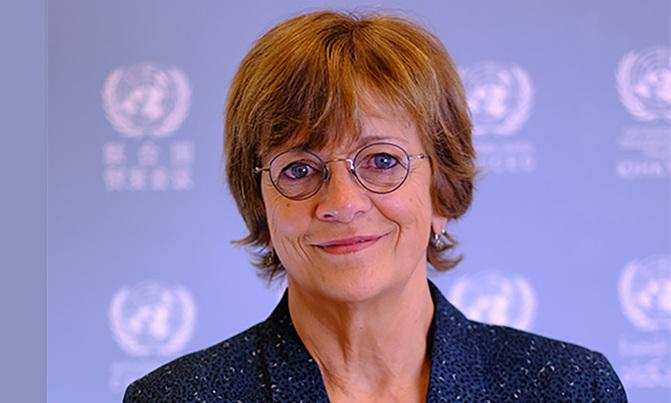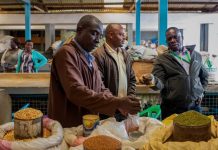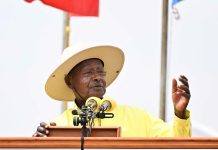Africa-Press – Uganda. GENDER |The United Nations Conference on Trade and Development (UNCTAD) has warned that the COVID-19 crisis could reverse the gains made on gender-equality in economies and exacerbate the feminisation of poverty.The warning was sounded by UNCTAD’s deputy secretary-general, Isabelle Durant during the 2020 virtual Empretec Women in Business Awards held recently.Durant said while success is still not yet gender-neutral, the COVID-19 pandemic has further brought disproportional socio-economic challenges for women and female entrepreneurs, who are said to have been affected most by the pandemic.She said entrepreneurship is more critical than ever in this pandemic and for recovery and that it can play a big role in promoting social cohesion, reducing inequalities and expanding opportunities for all, including women.The UNCTAD Investment Director, James Zhan, also noted that the coronavirus pandemic has triggered a recession with a particularly strong negative impact on women entrepreneurs, given their overrepresentation in key sectors affected by lockdowns, such as retail trade, hotels and restaurants and education.He added that pre-pandemic gender inequalities, such as limited access to finance, technology, markets, networks and social protection have been exacerbated during the crisis, with women entrepreneurs suffering more with increased care burdens during lockdowns.The International Finance Corporation also recently noted that the COVID-19 pandemic had hit women-owned entities most and that it could increase gender inequality in businesses, especially in Africa, Asia and the Middle East.This year’s Empretec awards focused on resilience in diffi cult times.”We are dedicating this award to resilience, a key element in this pandemic times. Resilience means that we can protect entrepreneurs and their businesses and, by doing so, reduce uncertainties and make them able to recover quickly,” Durant said.She added: “Entrepreneurs should have mindsets that will allow them identify new opportunities for them to succeed. If we are making women think as entrepreneurs, this is an efficient tool to re-enforce their resilience in their personal and professional life.”She called for concerted efforts to mitigate the negative effects of the crisis on women through mainstreaming women’s empowerment in all policies.Ugandan winsIn this year’s awards, Julian Adyeri Omalla, the proprietor and chief executive officer of Delight Uganda, a company that processes fruit juice emerged one of the winners in the special category awards. She scooped the “Inclusive Business Award” for her inclusive business model, which has seen her mobilise and engage over 500,000 vulnerable female farmers to grow orchards, intercropped with short-term seasonal crops for income and sustainability.Omalla thanked Enterprise Uganda and UNCTAD for the award and pledged to continue with her struggle to uplift rural women from poverty.The Enterprise Uganda executive director, Charles, Ocici also applauded UNCTAD for the Empretec Programme, saying it has had a great transformative effect on women-led businesses across the countries where they operate.”While it is widely acknowledged that SMEs offer scope for economic development, few interventions in enterprise development equal the transformative effect of the Empretec programme. Thanks to empretec, Enterprise Uganda’s credentials in SME development are unparalleled in this country,” Ocici said.He added that the power of Empretec to transcend the gender and economic barriers of its beneficiaries speaks to its universality in correcting economic disparities in society.”Omalla’s story confirms that returns for investing in Empretec are manifold, enduring and far-reaching,” Ocici noted.Overall winnerThe 2020 overall award was won by AfnanKamel Ali, a Jordanian tech entrepreneur, who runs the Eureka Tech Academy which trains children from the age of six to 16 to be innovators and how to commercialise their ideas. Her special focus is on artifi cial intelligence, the internet of things and robotics.The other two special category winners were Argentina’s Paula Sánchez (Entrepreneurship in Circular Economy Award). Her company, Bioita, creates sustainable, reusable cutlery made from cane, a sustainable way of production.Ana Maria Flores, of Finca Don Antonio from Ecuador won under the Sustainable Agriculture category. She operates an agro-ecological, sustainable farm, which deploys a chemical-free agro-ecological approach.More than 30 nominations were submitted, but only 10 were shortlisted and evaluated based on innovation, leadership and impact on their communities.The other finalists were Brazil’s Óliver Agda, Colombia’s Sandra Milena Sánchez Valenzuela, Malaysia’s Sandra Anne Ghouse, India’s KayanMotashaw, Romania’s Nicoleta Hritcu, and Tanzania’s Hadija Jabiri. They were drawn from UNCTAD’s vast Empretec programme network spanning 40 countries.
all news






